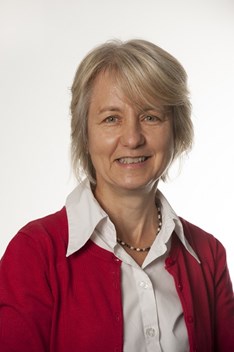Teresa Strachan is an RTPI Fellow and former Senior Lecturer in Planning at Newcastle.
 The 2019 Planning Profession survey found that only 1% of the RTPI’s chartered members worked for the UK’s universities. As the north east region of England accounts for only 3% of the UK’s total RTPI chartered membership, working as a chartered planner for Newcastle University, very much in the heart of the north east, made me a little unusual!
The 2019 Planning Profession survey found that only 1% of the RTPI’s chartered members worked for the UK’s universities. As the north east region of England accounts for only 3% of the UK’s total RTPI chartered membership, working as a chartered planner for Newcastle University, very much in the heart of the north east, made me a little unusual!
Indirect route to career progression
I moved to the private sector as a senior planner soon after securing chartered membership during my graduate role in local government. A career break saw me take a few years out of practice, spending any spare time I had volunteering for local community projects.
As the family got older and attempts to return to work in a part - time capacity (during the mid-90s recession) were proving to be very difficult, I explored a potential alternative career route, into post-16 teaching.
I was fortunate to find that the completion of my Post Graduate Certificate in Education (PGCE) had in fact prepared me for a newly created part-time community planner role with Planning Aid North (PAN).
Amongst the many ground breaking educational outreach projects that PAN delivered across the north east, tutoring final year undergraduate planning students in their projects with local school children had a profound effect on me. I witnessed how these young planners took ownership of their group project, challenging their own understanding of their subject as they prepared to deliver school sessions on key planning issues such as sustainability, housing and green spaces.
Then, an opportunity to provide tutorial support for the Certificate in Planning Practice (CPP) placement programme, offered me a new role within Newcastle University’s Planning School. From there I went on to teach key planning modules, enabling me to consolidate and share previous knowledge gained across the different sectors.
Challenged from outside planning
Being a chartered planner as part of a university community required my teaching and tutoring to promote the highest standards in how our future planners work with others; how they listen to and respect others’ opinions; and how, as professionals, they continually reflect and improve their practice.
The University’s former Vice Chancellor, Professor Chris Brink, asked us to consider not only ‘what we were good at’, but also ‘what we were good for’ as a civic university. This challenged me to think about how the planning school shares and uses its privileged planning knowledge for the wider public good.
Going on to establish the ‘YES Planning’ student volunteer project provided me with a further platform to share engagement methodologies and professional reflection skills, whilst giving students first hand experience of working across year groups, degree programmes and with young people in the community.
Using hot food takeaways as one of our topics, ‘YES Planning’ enabled me to draw on my local authority and consultancy experience to support students in their learning around its complex component issues, whilst offering them the space to apply their creativity in developing engagement resources for their work with local young people.
Reflecting on what I can offer
The coordination of the CPP placement has given me a wonderful insight into and understanding of employers’ and students’ expectations of the profession.
Being able to consider planning from a student’s, an academic’s and an employer’s perspective helped me to appreciate the pivotal role of the university community in informing practice by inspiring young people in their chosen profession.
Reflecting on how the academic environment facilitated my own development as a planner led me to apply for Fellowship of the RTPI. I was elected to a Fellow member in February 2022. It was important for me to apply for Fellowship status as a means of showcasing the less obvious, yet significant work that is done on a daily basis in our planning schools in nurturing our future planning professionals.
In recent years, the RTPI has actively promoted routes to associate and chartered membership for those working in academia and it is only right that this recognition is available.
Sharing the knowledge
Being a planner within academia has enabled me to continue to learn and to share that planning knowledge, to support students in their endeavours and to reflect upon on how we use that knowledge for empowering communities.
As a new Fellow of the RTPI, I am even more determined to continue in this process and I would encourage other Fellows to do the same, either through their local university planning schools or through the RTPI’s ‘Future Planners’ programme (RTPI | Schools and outreach).


